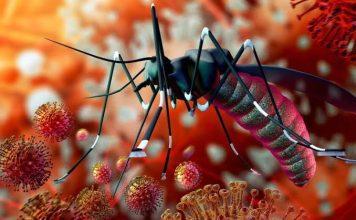Professor Olugbenga Mokuolu, Co-Chair of the Roll Back Malaria Partnership Case Management Working Group, has urged for immediate improvements in Nigeria’s malaria data to accurately represent the extent of the disease.
He made this plea in an interview with the News Agency of Nigeria in Lagos, prior to the observance of World Malaria Day.
World Malaria Day is celebrated every April 25th and aims to highlight worldwide efforts to eradicate malaria, emphasizing the importance of sustained political commitment and continued investment in malaria control and elimination.
The theme for this year’s commemoration is ‘Accelerating the fight against malaria for a more equitable world’. Mokuolu also stressed the significance of strengthening the practice of diagnostic testing for malaria prior to treatment to ensure accurate documentation of cases.
He stated ,“In a situation where we continue to practice empirical treatment for all fever, we are going to create a false record that exaggerates the number of malaria cases.
“If 10 people come in with fever, there’s a tendency for a health worker who didn’t conduct a test on the patient to diagnose seven for malaria, and that’s what the record would reflect.
“But if you test, you will be surprised that maybe two or a maximum four out of the 10 test positive for malaria.”
Mokuolu, serving as the Special Adviser to the Coordinating Minister of Health and Social Welfare on Malaria, observed an increase in the availability of domestic data as a result of the establishment of entomological monitoring.
He elaborated, “Now better data is emerging and helping us understand vector bionomic that’s overall behaviour around the vector.
”With such understanding, we can better target our interventions to where it will make the most impact.”
Mokuolu stated that there are ongoing efforts to improve and adjust current tools and incorporate new tools in technical and strategic methods. He emphasized the importance of incorporating a multisectoral approach in the fight against malaria to make a significant impact.
He stated ,“Multisectoral approach has become critical in our response – the Ministry of Agriculture has as much stake as the Ministry of Health; the Ministry of Environment is as critical as any drug we will use to treat malaria.”
The Mokuolu emphasized the significant impact that malaria has had on individuals and recognized that various measures have been implemented to combat it. Despite these efforts, he noted that malaria still poses a threat to public health and remains a significant economic burden in affected countries.
“It’s a disease that has perpetrated the vicious cycle of inequality, impacting children under five, pregnant women, refugees, and internally displaced persons.
“We must be deliberate to ensure these vulnerable populations are reached and covered as an affirmation of their inclusion in our world,” he advised.
The expert highlighted the strengthening of primary healthcare centers nationwide to prevent, detect, and lessen the impact of the disease.
He expressed concern over the insufficient budget allocations for malaria at both federal and state levels, advocating for increased funding to drive progress.
Mokuola revealed that there were promises from the federal government to enhance the allocation of funds for the fight against malaria in the 2025 budget.
Professor Wellington Oyibo, a Consultant Medical Parasitologist, mentioned that research conducted by his team across the country revealed inaccuracies in primary data on malaria at healthcare facilities.
He emphasized the prevalence of incorrect diagnosis and unnecessary treatment of malaria at health centers nationwide, where all instances of fever are treated as malaria.
This practice, he noted, leads to significant economic and life-threatening consequences for patients and communities.
The parasitologist recommended that healthcare workers receive training and supervision to improve data quality for more targeted interventions.
